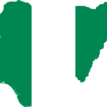

Analysts dispute IMF’s 1.5% forecast for 2021
Project 2.7% economic growth for 2021
By Babajide Komolafe
Following the faster than expected economic growth in Q4’2020 and lower contraction for the full year 2020, leading investment analysts have disputed the 1.5 per cent growth forecast for Nigeria’s economy in 2021 by the International Monetary Fund (IMF), projecting that the nation’s economy will grow by about 2.7 per cent this year.
The IMF in its latest World Economy Outlook released last month revised downward its growth forecast for Nigeria’s economy in 2021 to 1.5 percent from 1.7 percent and 2.6 per cent earlier projected in October and June last year.
Explaining the rationale for the IMF’s lower forecast for Nigeria’s economy in 2021, the trio of Ari Aisen, Jesmin Rahman, and Jiaxiong Yao of the IMF, African Department, said: “Nigeria’s recovery is expected to be weak and gradual under current policies. Real Gross Domestic Product (GDP) growth in 2021 is expected to turn positive at 1.5 percent. Real GDP is expected to recover to its pre-pandemic level only in 2022.
READ ALSONDDC to train unemployed youths at Innoson Motors
“The near-term outlook is subject to downside risks from pandemic-related developments with Nigeria experiencing a second wave. Over the medium term, a subdued global recovery and decarbonization trends are expected to keep oil prices low and Organization of the Petroleum Exporting Countries quotas in place, restricting oil-related activities, fiscal revenues, and export proceeds. Non-oil growth is also expected to remain sluggish, reflecting inward-looking policies and regulatory uncertainties.”
This gloomy outlook was however contradicted by analysts in leading investment firms in the country, who projected stronger economic growth of about 2.7 percent in 2021.
Their bullish outlook is driven by the higher-than -expected performance of the economy in the fourth quarter of 2020 (Q4’2020).
Last week, the Nigeria Bureau of Statistics (NBS) released its GDP report for Q4’2020.
According to the NBS, the economy recorded GDP growth year-on-year (y/y) of 0.11 per cent in Q4’2020, higher than 3.62 per cent, y/y, contraction recorded in the previous quarter (Q3’2020). It also represents the first positive GDP growth in three quarters, indicating the nation has exited recession.
The NBS report also showed a full year GDP contraction of 1.92 per cent as against the GDP growth of 2.27 percent in 2019.
However, the GDP growth of 0.11 per cent in Q4’2020 and the 1.92 per cent contraction for 2020 beat projections by the IMF and most analysts.
For example the 1.92 per cent GDP contraction for 2020 was lower than the 4.3 per cent and 3.2 per cent contraction projected by the IMF and the World Bank. It was also lower than the 2.0 per cent contraction projected by global accounting firm, PwC.
Similarly, the 0.11 per cent GDP growth in Q4’2020 was higher than the contraction projected by most analysts.
“Our expectation was a slowdown in contraction to -1.95% and was undone by robust growth of 3.42% for agriculture, the sector’s best showing since Q4 ’17″, said analysts at FBNQuest Capital Limited.
Also expressing similar sentiment, Director General, Lagos Chamber of Commerce and Industry, LCCI, Muda Yusuf said, “The quarterly performance was a pleasant surprise.”
The surprising performance of the economy in Q4’2020 stimulated a surge in analysts’ optimism about the nation’s economic growth prospect in 2021, with an average projection of 2.7 per cent GDP growth.
While analysts at United Capital Plc projected a best case scenario of 2.1 per cent GDP growth for the in 2021, analysts at Afrinvest Securities Limited and Vetiva Capital Management Limited projected 2.5 percent and 3.5 per cent GDP growth respectively for the year.
The robust growth projections, according to the analysts are however subject to some conditions including: Adequate measures to prevent herder-farmer clashes from underwhelming agriculture output; Measures to address rising insecurity in the country; Faster-than-expected recovery in the oil sector; Improved dollar supply by the Central Bank of Nigeria (CBN) and the move towards exchange rate unification.
In addition, LCCI, suggested: Effective management of the pandemic locally and globally; Widespread vaccine rollout; Direction of global oil market; Fiscal and monetary policy direction; and Ease of doing business reforms.
United Capital projection
Explaining the basis for the 2.1 per cent GDP growth projected for 2021, analysts at United Capital, said: “Looking ahead, we remain optimistic about the sustained pace of recovery in the aggregate level of economic activities.
While growth in Q1’21 may be muted due to a high base effect of Q1’2020, our optimism feeds largely on potential stronger recovery in Q2 and Q3-2021 relative to the negative growth observed in the corresponding quarters of 2020.
“Specific to the non-oil sector, we expect the improved performance in Services to be sustained as people become more confident to go about their daily activities. Also, we think the Agricultural sector would build on the gains of 2020 as demand remains strong, security challenges abate, and weather conditions improve.
“In the oil sector, we expect improved performance in FY-2021 considering the low base for oil production in 2020. While the country’s production continues to be capped under the OPEC+ quota, we expect a recovery in production as OPEC+ gradually returns production level back to pre-pandemic levels following recent price gains and positive sentiments from increased rate of vaccinations which could spur demand for travel and consequently oil.
“Overall, we maintain our base case scenario GDP growth forecast of 1.7% for FY-2021 with a bull case forecast of 2.1% premised on faster than expected recovery in oil sector GDP.”
Afrinvest projection
Analysts at Afrinvest also explained the rationale for projecting 2.5 percent GDP growth in 2021.
They said: “In 2021, we project a recovery of 2.5% in real GDP to be driven by increased economic activities in the non-oil sector as activities pick-up on the back of the land borders reopening and general recovery in sentiments.
“Further, we anticipate a moderate expansion in the oil sector as global oil demand is projected to remain weak while prices recover faster. The major downside risks to our forecast include weaker-than-expected oil price and production, worsening insecurity and unfavourable weather patterns in the agriculture sector. We have ruled out the possibilities of lockdown despite increasing case count from COVID-19.”
Vetiva Capital projection
Expressing optimism for a 3.47 per cent GDP growth rate in 2021, analysts at Vetiva Capital, said: “Following a bumpy 2020, the economy is on course to recover in 2021, riding on the previous year’s low base.
Barring the return of hard lockdown measures, we expect higher growth outcomes in 2021 especially in the mid-quarters (Q2 & Q3), which were the most hit by the pandemic in the previous year. Consequently, we expect the economy to bounce back by 3.47% y/y in FY’21.
“However, an unfavourable base from Q1’20 could limit the pace of recovery in the quarter to 0.75% y/y.”
The post IMF, analysts split over growth forecast for Nigeria’s economy appeared first on Vanguard News.













![[Music] Yawa - Daddy Smith](https://1.bp.blogspot.com/-08L4kbKVYMQ/XkRj9qevVvI/AAAAAAAABNg/qJCcCSOboZsb2VdtqmI6oCKT-beM-MjCQCLcBGAsYHQ/w680/IMG-20200212-WA0049.jpg)

![[Music] Nasperoo - For you (prod. GenesisOfRhymes)](https://1.bp.blogspot.com/-VKVT2L_oEpI/YJzFl-JzIAI/AAAAAAAAP7o/wdtpsUzMIa0yBpC9qm_HIDl8QM-IMcvmACNcBGAsYHQ/w680/FB_IMG_1620886415010.jpg)
![[Music] Ezykeyz ft Joexclusive - Call on me (prod. Bayologic Beatz)](https://1.bp.blogspot.com/-B4gccNu7OJw/YJ7XaJ578fI/AAAAAAAAP8U/CDkPsggvrdMwu9ZRCR9G0mZy3d4twacbQCNcBGAsYHQ/w680/IMG-20210514-WA0090.jpg)







0 Comments
Advertise your business here at cheap rate and get large audience to your market. Call/Msg Teemikemedia: 07060733664 to get started.